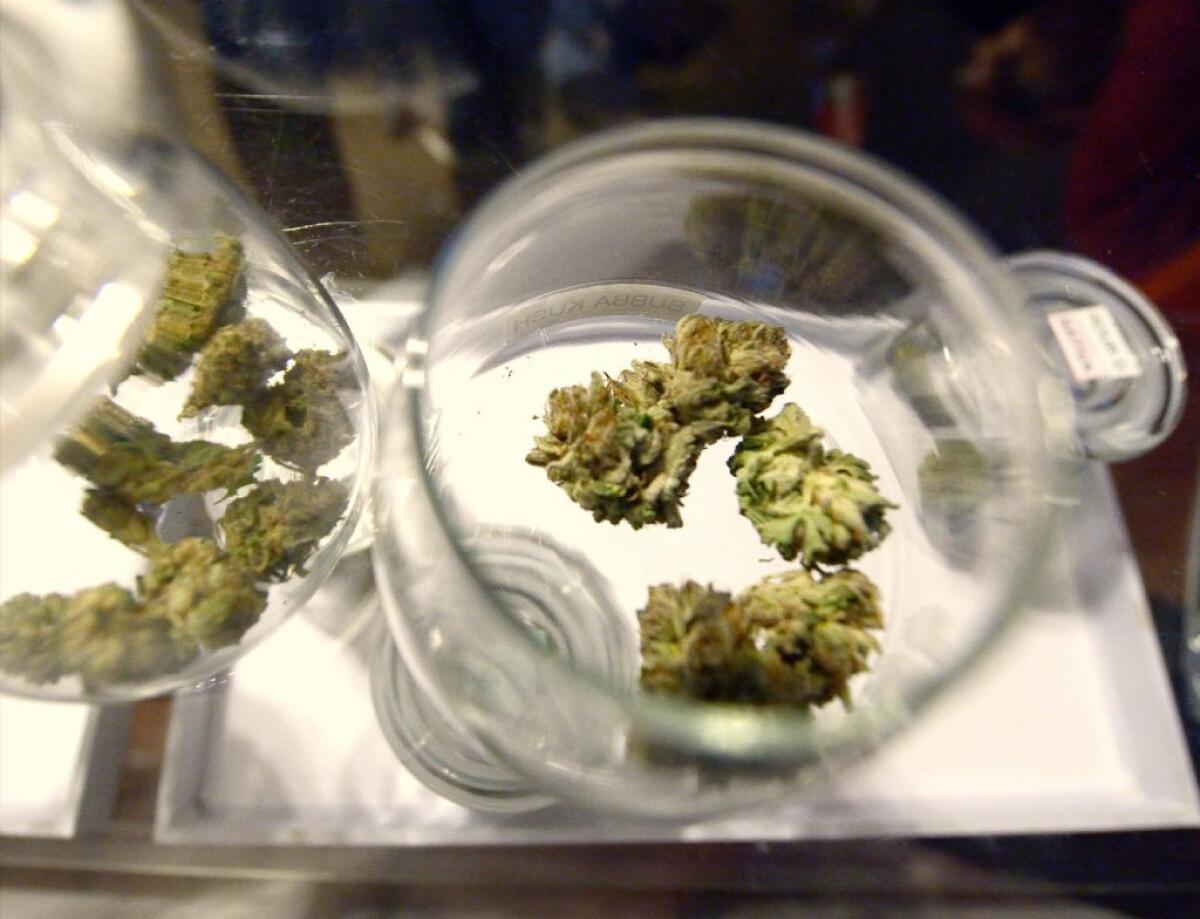Natural brain chemical could harsh the high of marijuana

Leave it to science to find a way to harsh the mellow of marijuana.
A French research team has discovered a natural chemical brake that can tamp down the effects of THC, the main intoxicant in marijuana. They believe it could lead to ways to protect against memory loss, torpor and other side-effects better known as being stoned.
“We have this built-in negative feedback mechanism, a brake” on cannabis intoxication, said University of Bordeaux neurobiologist Dr. Pier Vincenzo Piazza, principal author of a study published Thursday in the journal Science.
The researchers were investigating the role of neurosteroids in addiction. These are a class of hormones produced in the brain, and they have been implicated in regulating mood and cognitive activities.
After getting rats and mice high on the active ingredients of cocaine, morphine, nicotine, alcohol and marijuana, the researchers measured the increase in pregnenolone, a precursor to all steroid hormones that was thought to be otherwise inactive.
THC, or tetrahydrocannabinol, sent pregnenolone levels soaring by 1,500% - an astonishing increase that was about 50 times greater than that produced by the active ingredients of other drugs. But there appeared to be only small or insignificant increases in the neurosteroids for which pregnenolone is a precursor.
“This was a surprising finding,” said Piazza. “We thought this must have a direct role. We didn’t know it would be a brake, but that there had to be something.”
So, if cells were churning out the precursor ingredient at a relatively frantic pace, but not making a proportional amount of the acutual neurosteroids, what was all this pregnenolone actually doing?
THC works through a cell membrane receptor, known as the Type One cannabinoid receptor. In the brain, these receptors allow THC to enter the axon terminals of neurons, where it suppresses the release of certain neurotransmitters that relay the brain’s electrochemical signals to adjoining neurons.
Researchers stimulated or inhibited these receptors in the rodents and found pregnenolone levels also rose or fell.
Then they injected already stoned rodents with an inhibitor of pregnenolone. The rodents got higher, while the sober rodents showed no effects. Somehow, the welcome mat for THC also was letting loose the guard dogs.
On a cellular level, pregnenolone appeared to tamp down the suppression of neurotransmitters characteristic of THC intoxication.
“There was no identified effect for this substance before,” Piazza said. “Everyone thought it was only useful to build other steroid hormones.”
Behaviorally, pregnenolone also appeared to counteract the memory loss and increased appetite associated with THC intoxication in the rodents. And rodents conditioned to seek out a cannabinoid stimulator - an addictive behavior - did so a lot less after being injected with pregnenolone, the study found.
The researchers believe they have identified the cellular signaling pathway that amps up production of pregnenolone, and identified where it binds to that receptor.
Significantly, pregnenolone does not thwart the activity of the cannabinoid receptor. Drugs that do so have proven problematic. High doses can cause severe discomfort, while lower ones can be overcome by smoking more pot.
Neither appears to be the case with administering pregnenolone, the study found.
Piazza cautioned against running out to buy pregnenolone, which is marketed on the Internet as a way to boost production of hormones, such as testosterone. Pregnenolone doesn’t survive digestion well, and it doesn’t hang around long enough to produce effects in the brain, he said.
“Pregnenolone cannot be used as a drug by itself,” Piazza said.
The researchers hope to test compounds that could be effective for eventual therapeutic use.







